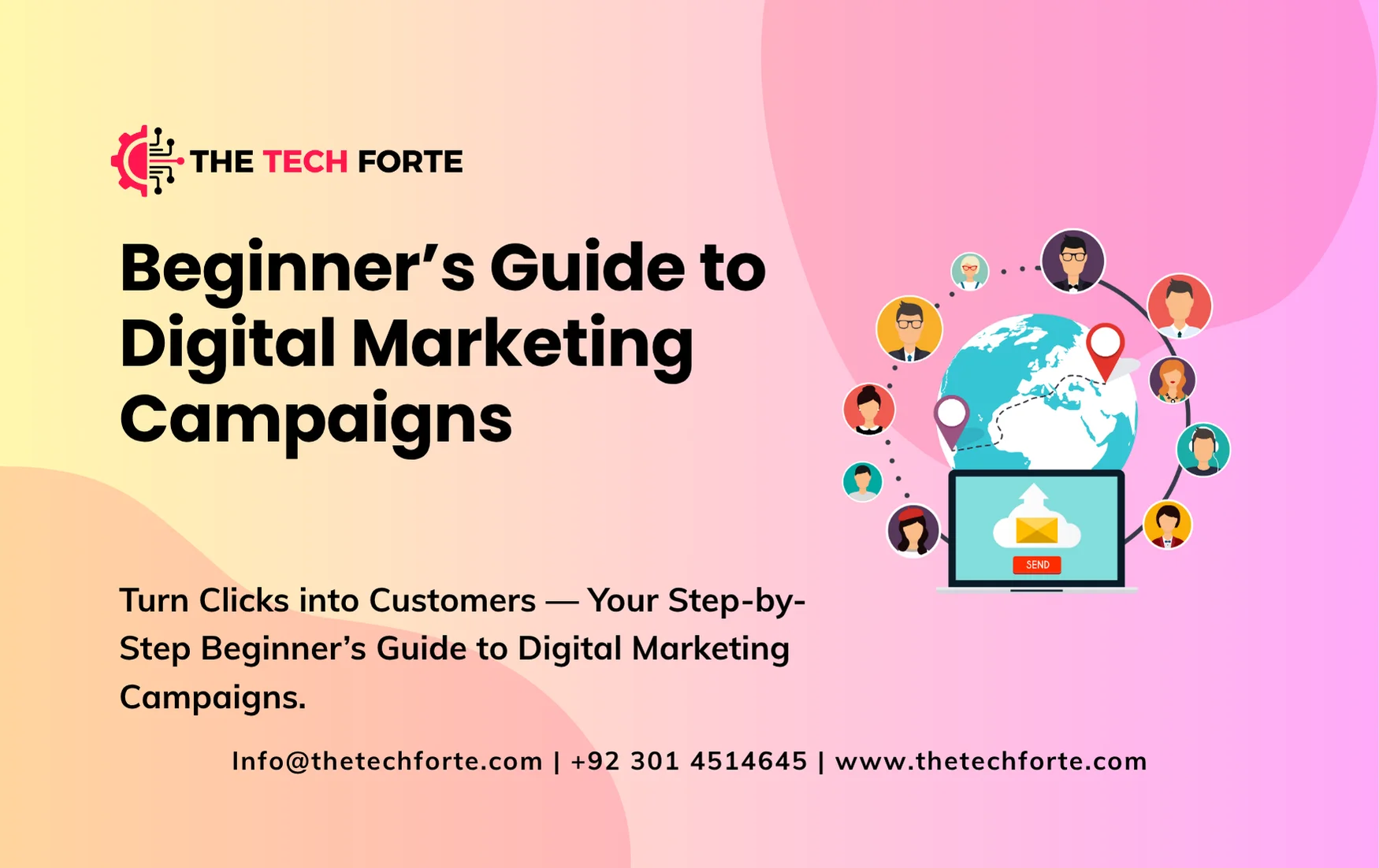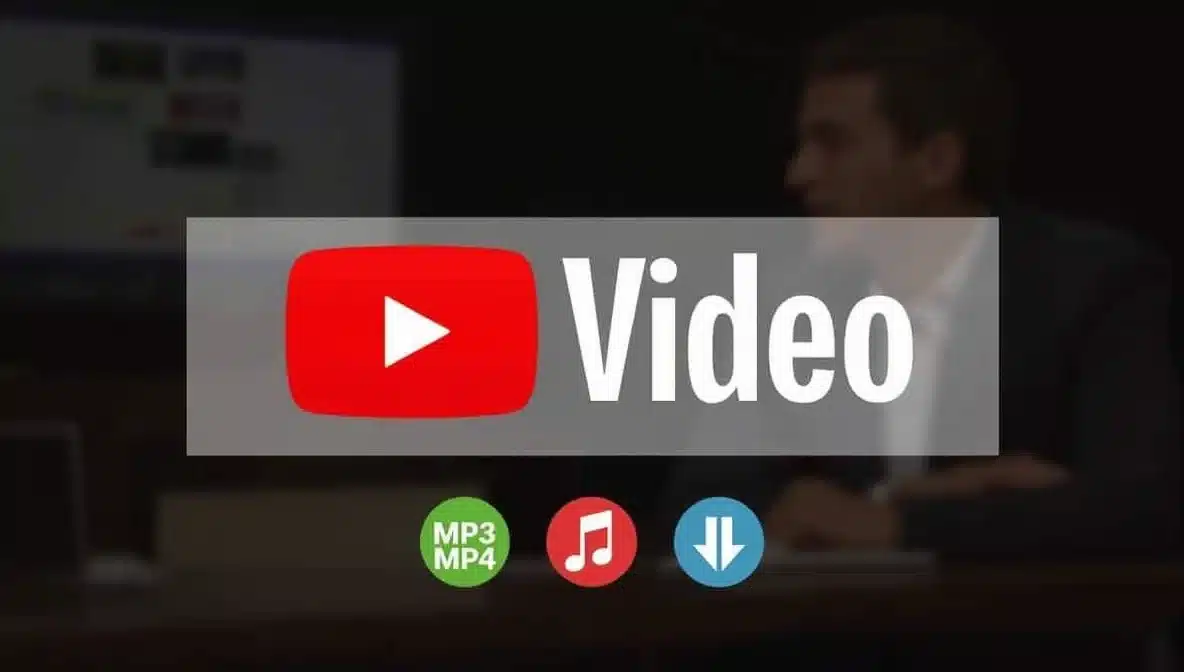
Beginner’s Guide to Digital Marketing Campaigns
In today’s fast-paced digital world, marketing has moved far beyond traditional billboards and TV ads. Businesses now reach their audiences through social media, email, search engines, and more. For anyone new to this space, understanding how to build and manage digital marketing campaigns 2025 can seem intimidating.
This beginner’s guide to digital marketing will walk you through everything — from strategy and planning to execution and performance tracking. Whether you’re a small business owner, freelancer, or aspiring marketer, this step-by-step digital marketing campaign guide will help you build an effective digital marketing strategy for beginners and get real results from your online efforts.
Read More: Video Marketing Trends That Drive Engagement
What Is a Digital Marketing Campaign?
A digital marketing campaign is a coordinated online strategy designed to promote a product, service, or brand using digital channels. These include websites, social media, search engines, email, and paid ads.
Unlike traditional marketing, digital campaigns are measurable and adaptable in real time. You can track engagement, conversions, and return on investment (ROI) with precision.
In essence, a digital marketing campaign helps your business attract attention, build trust, and turn prospects into loyal customers.
Why Digital Marketing Matters for Small Businesses
For small businesses, digital marketing is an affordable and powerful way to compete with larger brands. It levels the playing field by allowing even startups to reach global audiences through smart online strategies.
Some major benefits include:
- Cost-effectiveness: Online ads are cheaper than traditional media.
- Targeted reach: Focus on specific demographics or interests.
- Real-time analytics: Measure what’s working and adjust instantly.
- Customer engagement: Build lasting relationships through email and social platforms.
Simply put, digital marketing for small businesses is no longer optional — it’s essential.
Types of Digital Marketing Campaigns
Before creating your first campaign, you should understand the types of digital marketing available. Each serves a unique purpose in your marketing mix:
- Social Media Marketing Campaigns – Engage audiences on platforms like Facebook, Instagram, and TikTok.
- SEO and Content Marketing – Improve visibility on search engines and provide valuable content.
- Email Marketing Strategy – Nurture leads and retain customers with personalized communication.
- Paid Advertising Campaigns (PPC) – Use Google Ads or Facebook Ads to drive targeted traffic.
- Influencer Marketing Campaigns – Partner with content creators who can authentically promote your brand.
Using multiple digital marketing channels in harmony helps create a strong and consistent online presence.
How to Create a Digital Marketing Campaign (Step-by-Step)
Let’s break down how to create a digital marketing campaign in simple, actionable steps.
Step 1: Define Your Goals
Every campaign starts with a clear purpose. Are you trying to generate leads, increase website traffic, or boost sales?
Use the SMART framework:
- Specific – Clear and focused goals.
- Measurable – Trackable performance indicators.
- Achievable – Realistic expectations.
- Relevant – Aligned with your business objectives.
- Time-bound – Set deadlines.
Without measurable goals, you can’t optimize or improve your campaigns effectively.
Step 2: Identify Your Target Audience
Knowing who your audience is can make or break your campaign. Conduct target audience analysis to understand their age, interests, online behavior, and pain points.
Use analytics tools and surveys to create buyer personas — fictional representations of your ideal customers.
This insight will help you tailor your content, tone, and channels for maximum engagement.
Step 3: Choose the Right Digital Marketing Channels
Not all channels are equal for every business. Your digital marketing strategy 2025 for beginners should focus on where your audience spends most of their time:
- Social media platforms for engagement and brand awareness.
- Search engines for high-intent keyword traffic.
- Email marketing for nurturing leads.
- Paid ads for quick results.
Experiment and track which channels drive the best results for your brand.
Step 4: Craft a Compelling Content Strategy
Content is the heart of digital marketing. A good content strategy for digital marketing builds trust and authority while engaging your audience.
Your content can include blog posts, videos, infographics, podcasts, and social media posts. Make sure it aligns with your brand’s tone and your audience’s needs.
Use SEO and content marketing principles — such as keyword optimization, quality writing, and consistent publishing — to rank higher in search results.
Step 5: Set a Budget and Timeline
Every online marketing guide emphasizes the importance of budgeting. Allocate funds wisely across paid ads, tools, and content creation.
For small businesses, affordable digital marketing tools and free analytics platforms can help maximize returns. Always start small, test, and scale up once you find what works best.
Step 6: Launch Your Campaign
Once you have everything set — goals, content, audience, and budget — it’s time to launch.
Use platforms like Google Ads, Facebook Ads, or Mailchimp to run your campaigns.
Make sure to test different ad variations (A/B testing) to identify which visuals or headlines perform better. Launching your first campaign may take some trial and error, but that’s part of learning.
Step 7: Track, Measure, and Optimize
No campaign is complete without proper tracking. Use tools like Google Analytics, Facebook Insights, or HubSpot to monitor key performance indicators (KPIs).
Common metrics include:
- Website traffic
- Conversion rates
- Click-through rates (CTR)
- Cost per acquisition (CPA)
- ROI (Return on Investment)
This digital campaign performance tracking ensures you can continuously optimize and improve your results.
Social Media Marketing Campaigns
Social media marketing campaigns are one of the most effective tools in your marketing arsenal. Platforms like Instagram, LinkedIn, and TikTok allow you to build brand personality and connect with customers directly.
A strong social media marketing campaign should include:
- A content calendar for regular posting.
- Visual storytelling and engagement-driven posts.
- Use of hashtags, stories, and reels for visibility.
- Monitoring engagement and comments for feedback.
Automation tools like Buffer or Hootsuite can help you schedule and manage your posts efficiently.
Read More: How to Create a Winning Social Media Strategy
Email Marketing Strategy for Beginners
Despite being one of the oldest methods, email remains one of the highest ROI channels. A well-structured email marketing strategy can nurture leads and boost retention.
Focus on these essentials:
- Segment your audience based on behavior or interest.
- Write personalized subject lines and messages.
- Automate email workflows for onboarding or promotions.
- Track open rates and conversions.
For small businesses, tools like Mailchimp or Sendinblue make email marketing simple and affordable.
Paid Advertising Campaigns (PPC)
Paid advertising campaigns like Google Ads and Facebook Ads help drive immediate traffic to your website.
Here’s how to get started:
- Choose your ad objectives (traffic, conversions, brand awareness).
- Use precise targeting to reach the right audience.
- Set your daily or lifetime budget.
- Test different creatives and messages.
Paid ads deliver quick results and are great for time-sensitive promotions.
Influencer Marketing Campaigns
Influencer marketing isn’t just for big brands. Collaborating with micro-influencers can help you reach niche audiences with authenticity.
Choose influencers whose values align with your brand. Offer them products to review or create sponsored content.
This builds social proof and credibility — two critical factors in digital branding and engagement.
Marketing Automation Tools and Technology
Managing multiple channels can be overwhelming. That’s where marketing automation tools come in.
Tools like HubSpot, Zoho, and ActiveCampaign can automate:
- Email sequences
- Social media scheduling
- Lead nurturing
- Analytics reporting
Automation saves time while ensuring consistent communication with your audience.
How to Measure the Success of Your Marketing Campaign
To understand whether your campaign worked, you need effective conversion tracking and campaign ROI measurement.
Key metrics to analyze include:
- Cost per lead (CPL)
- Customer acquisition cost (CAC)
- Return on ad spend (ROAS)
- Engagement rate
These insights help you refine your strategy for future campaigns.
Common Mistakes Beginners Should Avoid
Even the best campaigns can fail if you overlook key details. Avoid these common beginner mistakes:
- Targeting too broad an audience.
- Ignoring analytics data.
- Using inconsistent branding.
- Neglecting mobile optimization.
- Lacking clear calls to action.
Remember, campaign optimization is an ongoing process — learn, adapt, and evolve.
FAQs – Beginner’s Guide to Digital Marketing Campaigns
It’s a coordinated series of online marketing efforts designed to achieve a specific business goal, like lead generation or brand awareness.
Begin by setting clear goals, identifying your audience, selecting channels, creating content, and tracking results.
Plan, execute, analyze, and optimize. Each step builds upon the previous to ensure long-term success.
It depends on your goals and audience. Social media works for engagement, SEO for long-term growth, and PPC for fast results.
Use analytics tools to calculate the return on your ad spend, website traffic, and conversions against your total investment.
Conclusion: Building a Digital Future, One Campaign at a Time
Creating your first digital marketing campaign doesn’t have to be overwhelming. With clear goals, the right channels, and consistent tracking, anyone can master the basics of online marketing.
This beginner’s guide to digital marketing campaigns has given you the framework to plan, launch, and optimize effective campaigns — even on a small budget. Start simple, keep learning, and watch your digital presence grow.






